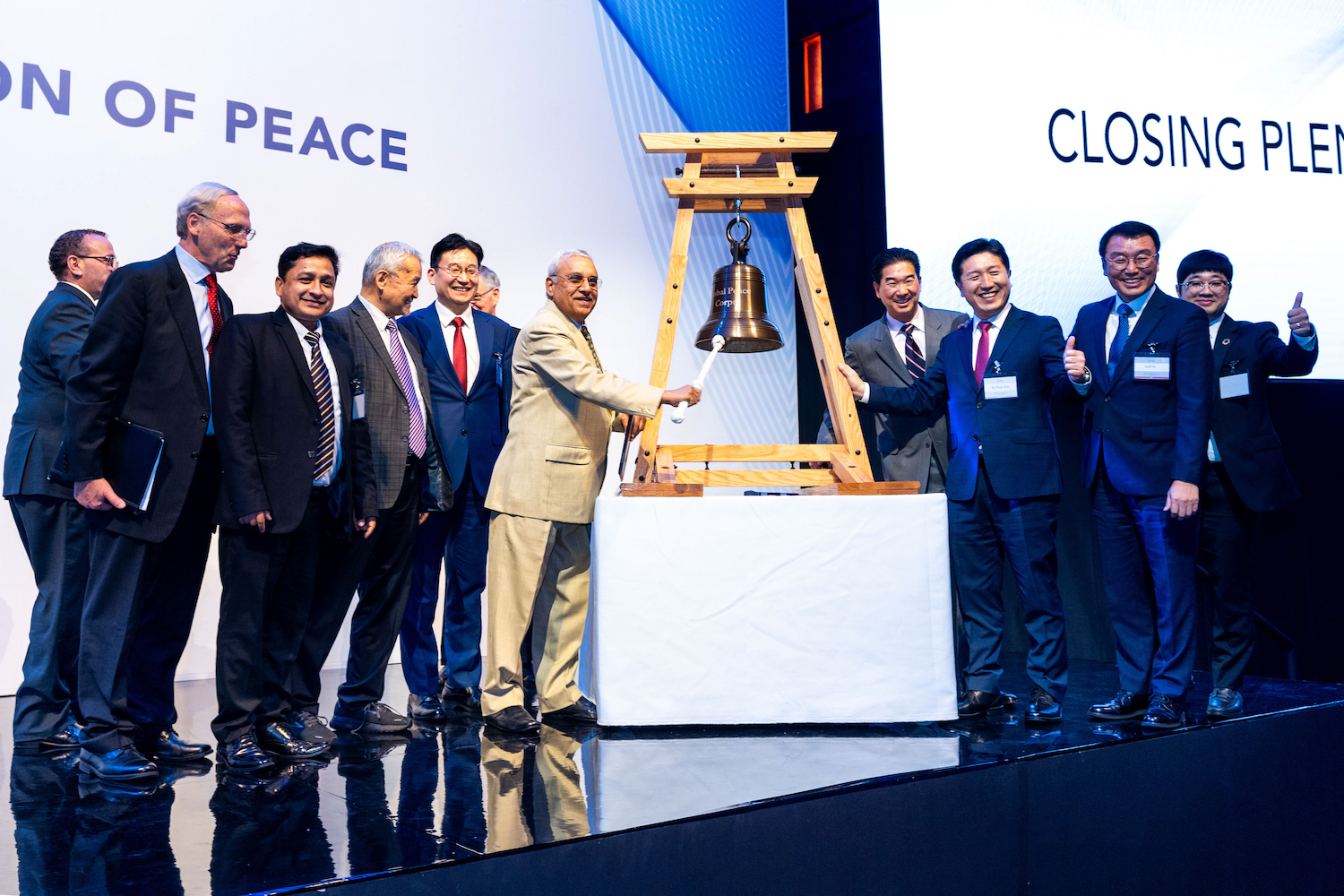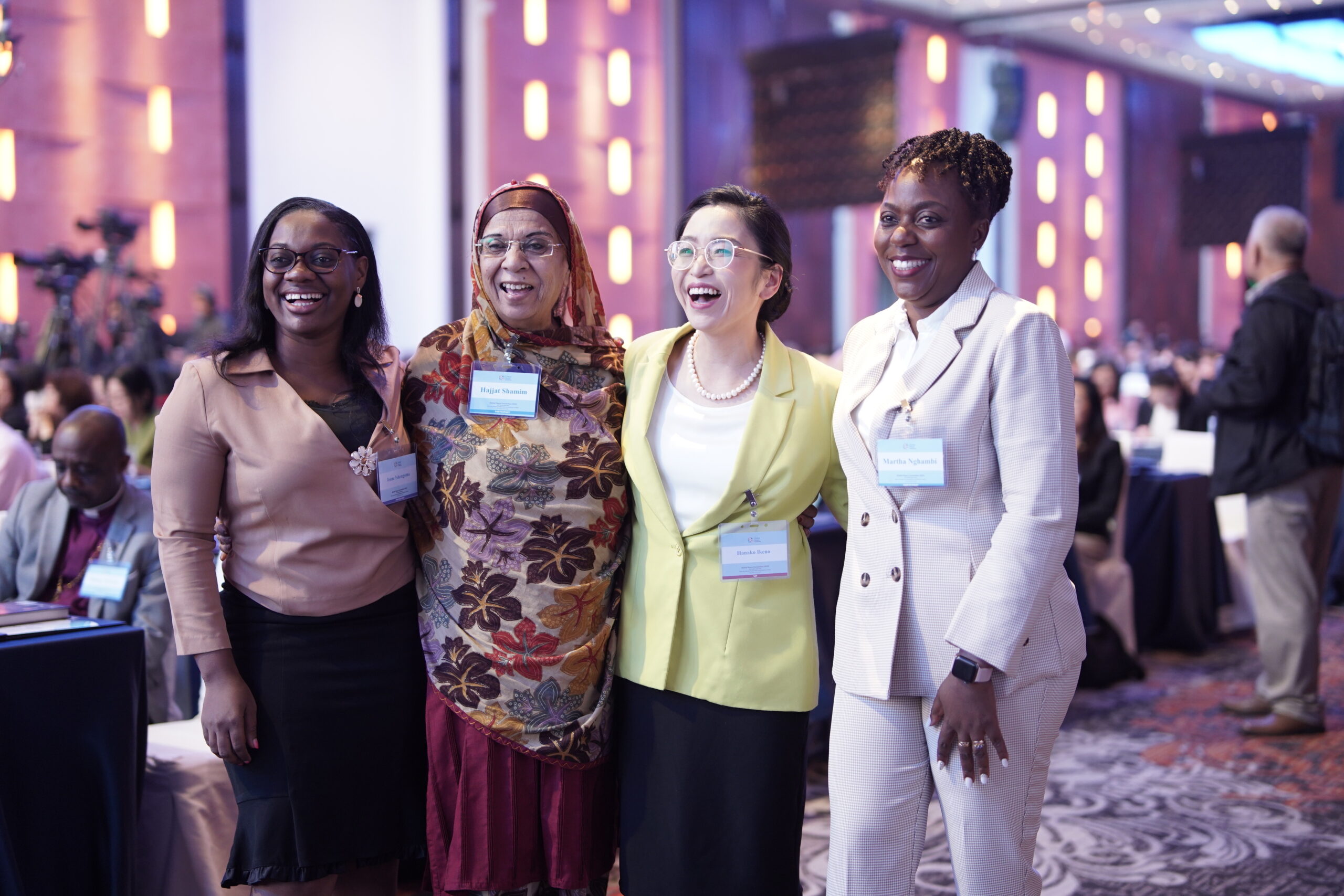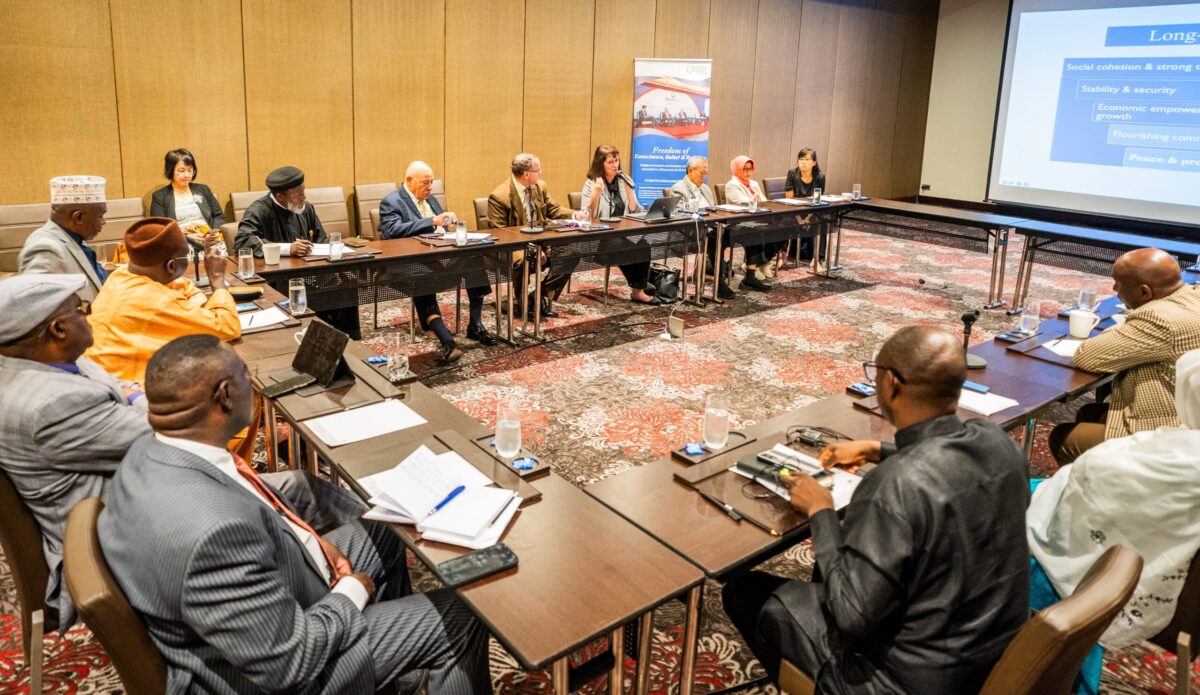One Korea Forum Concludes 2023 Global Peace Convention Track on Peace, Security and Human Rights
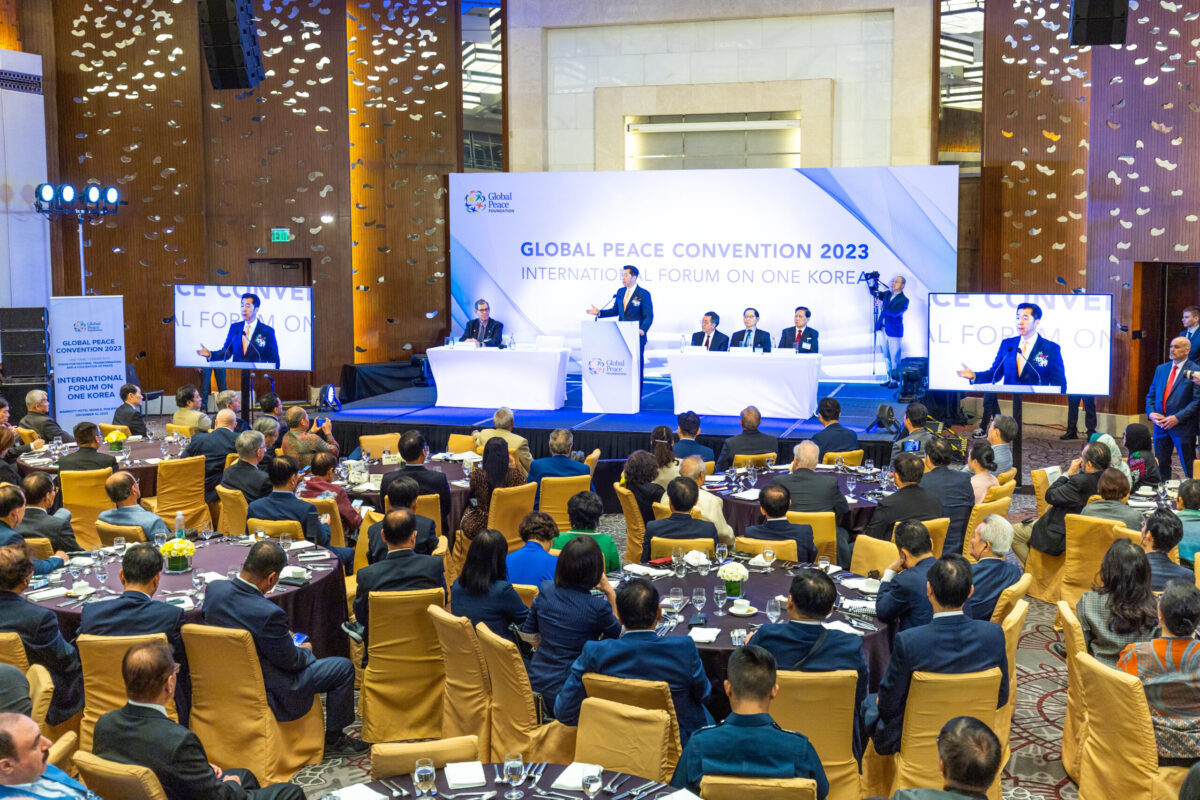
Since its founding in 2009, the Global Peace Foundation has advanced an approach to reunification that empowers the Korean people, brings focus to the human rights abuses and security threats posed by the North Korean regime, and sets forth a vision of a free, united, and prosperous Korea that reflects the Korean people’s shared history, values, and traditions.
GPF has hosted dozens of International Forums on One Korea, convened in the ROK National Assembly, the U.S. Congress, the Great Hurl in Mongolia, and capital cities in Europe, Africa, and Latin America.
GPF has also organized rallies, K-pop concerts, seminars, and working groups in Korea and globally to build grassroots support for reunification.
The International Forum on One Korea on December 12, hosted as part of the 2023 Global Peace Convention in Manila, marked the conclusion of previous sessions on Korean security and human rights issues hosted virtually in November and December.
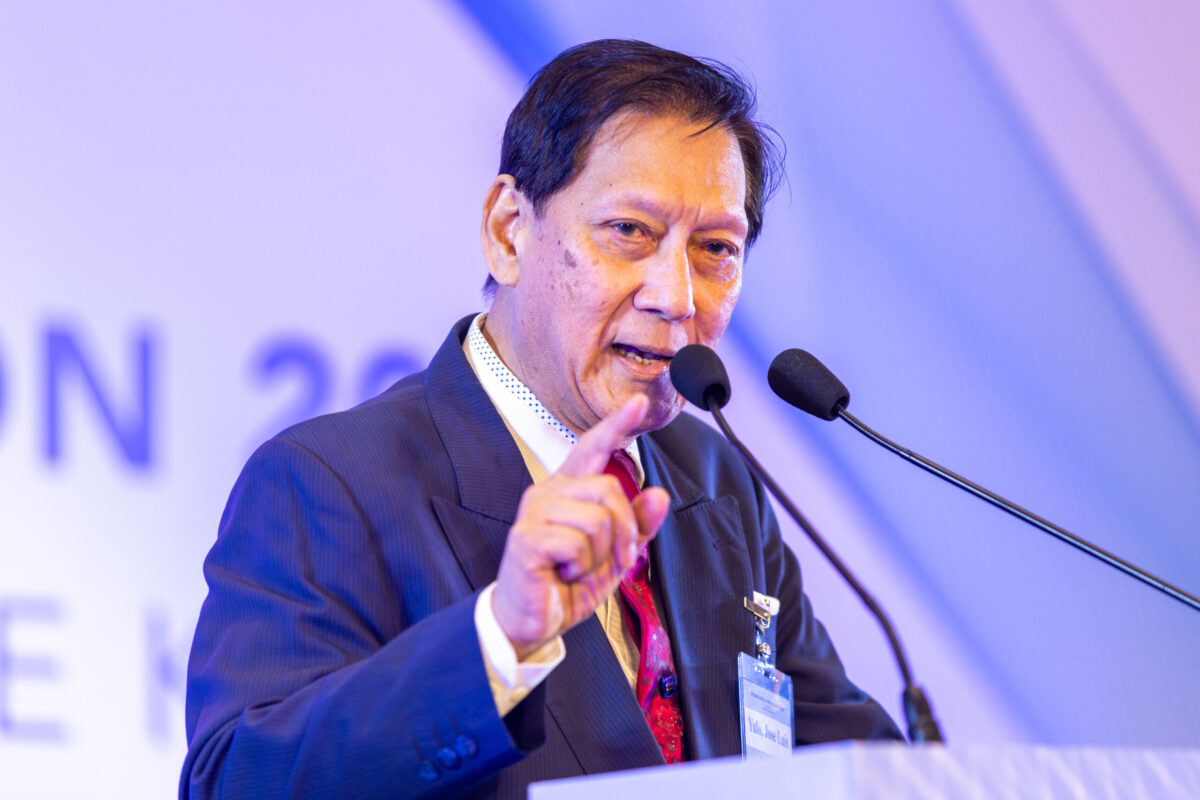
Jose Luis Yulo Jr., president of the Chamber of Commerce of the Philippine Islands
Addressing the International Forum in Manila, Jose Luis Yulo Jr., president of the Chamber of Commerce of the Philippine Islands and former president and CEO of the Philippine Stock Exchange, brought attention to the convergence of ideas in three recent publications: the 2014 book Korean Dream: Vision for a Unified Korea by GPF Chairman Dr. Hyun Jin P. Moon; 2030: One World, One Community, One Family, by the former Philippine President Fidel V. Ramos; and “Five Pillars for Navigating the Future,” a recent pamphlet by the Philippine Chamber of Commerce.
“They all agree that unity, freedom and peace are the precursors of economic development,” he said. Can peace or economic development exist without freedom? Spiritual well-being, emotional well-being, health well-being, mental well-being, and finally material well-being—economic development—can all happen if we have unity, freedom, and peace.”
Economic prospects of reunification
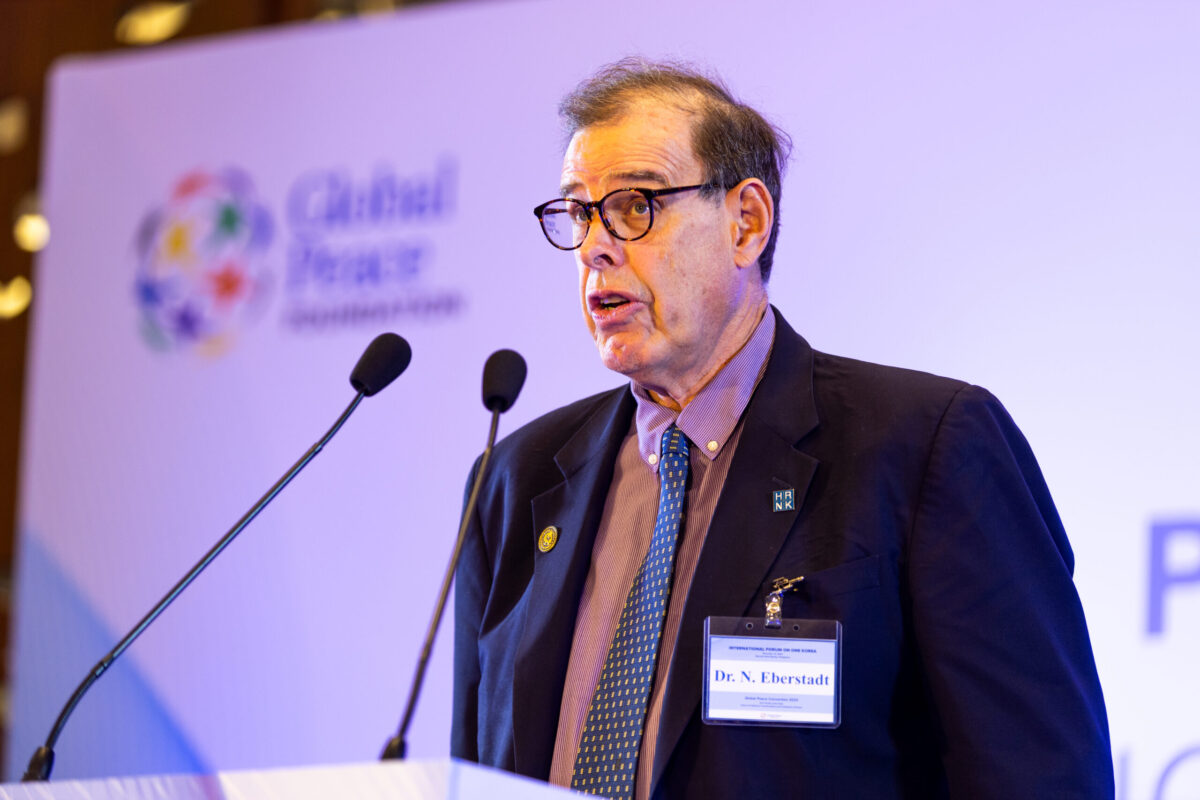 |
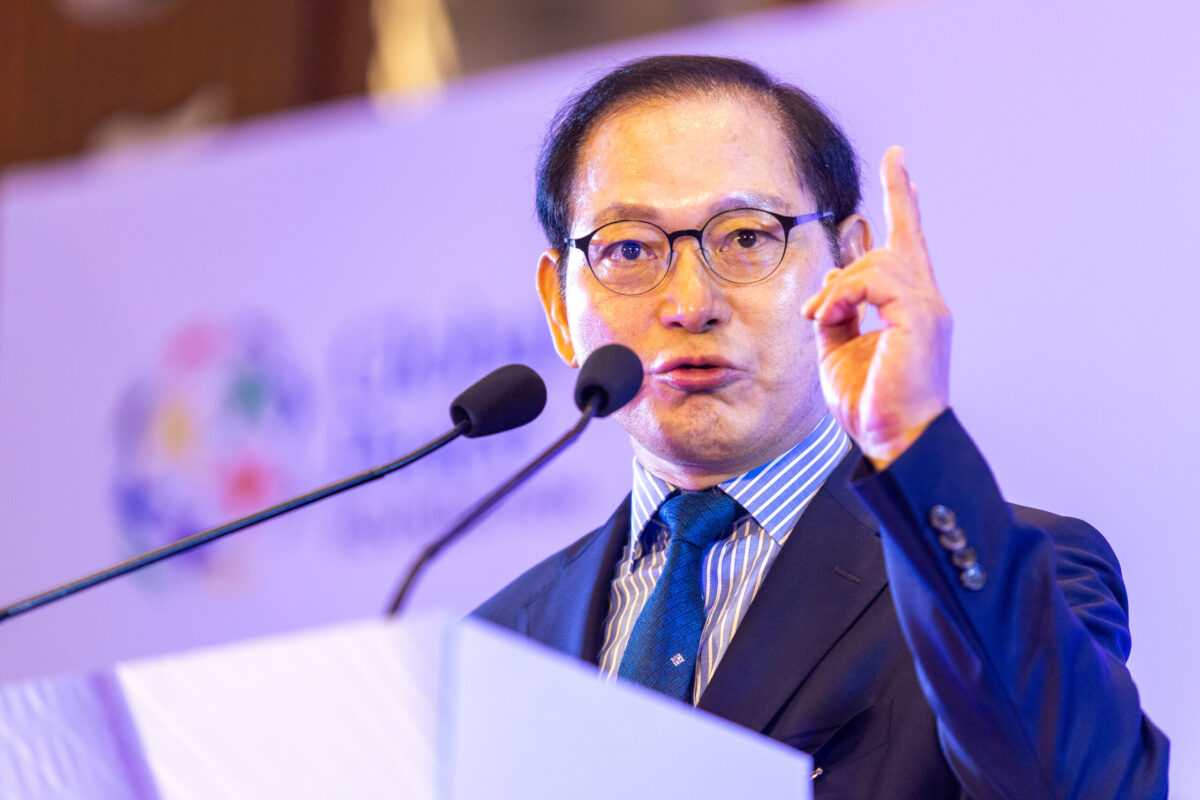 Above: Dr. Nicholas Eberstadt, Henry Wendt Chair in Political Economy at the American Enterprise Institute; below: Dr. Chong-Soo Park, former chairman of the Presidential Committee on Northern Economic Cooperation Through Economic Development |
Addressing the stark failure of the North Korean regime to minimally manage its economy and the many misconceptions relating to the economic burdens of reunification, Dr. Nicholas Eberstadt, Henry Wendt Chair in Political Economy at the American Enterprise Institute, said North Korea ranks among the biggest economic losers in the post-war era.
North Korea, he said, is now subsisting on unreported barter, economic piracy, aid capturing, and Hobbesian entrepreneurship. “Should we really be surprised that the government with the world’s worst practices and policies also had the worst economic results in the world? Business climate matters.”
Answering the many daunting projections about the costs and burdens of reunification, Dr. Eberstadt presented an in-depth analysis of the economic implications of reunification, which he summarized in four points:
First, the longer reunification is postponed, the wider the gap between north and south, the bigger the task and the longer it will take. Second, North Korea’s present poverty is the entirely predictable consequence of three generations of extraordinary misrule by a worst-in-class dictatorship. Third, the economic reconstruction of Northern Korea will be an immense project. But if the returns on investment in this project are high, the project can basically pay for itself in the long run. And fourth, thanks to generation after generation of market-led modern economic development, both South Korea and the world as a whole are richer and more productive than ever before, better poised to mobilize and deploy the immense amounts of capital and know-how a successful Korean reunification will require.
Dr. Chong-Soo Park, former chairman of the Presidential Committee on Northern Economic Cooperation Through Economic Development, warned that unification reached without preparation will become a disaster.
He said he proposed creating an international free-economic zone on the North Korea, China, and Russian border, which the United Nations had supported since 1991. All three countries have support this initiative, but western countries have largely been absent. He urged the UN to take an active role in supporting wider participation in such an economic zone. “Such an initiative can support the role of the UN and restore peace not only in Northeast Asia but also in the world,” Dr. Park said.
A new Korean nation
GPF Chairman Dr. Hyun Jin Moon, addressing the forum extemporaneously, reflected on the ideals of the 1919 Korean Independence Movement that established a precedent for freedom and self-determination of colonized peoples in the twentieth century. He said those ideals, based on the traditional Korean ethos of Hongik Ingan, or “living for the benefit of humanity,” were especially relevant today, “where the world is fragmenting into its own little spheres, dredging up old animosities, hatred, bitterness, a sense of victimized and victimizers.”
He also questioned the assumptions of the unification paradigm of a modern, cosmopolitan South absorbing the impoverished, soul-crushing North.
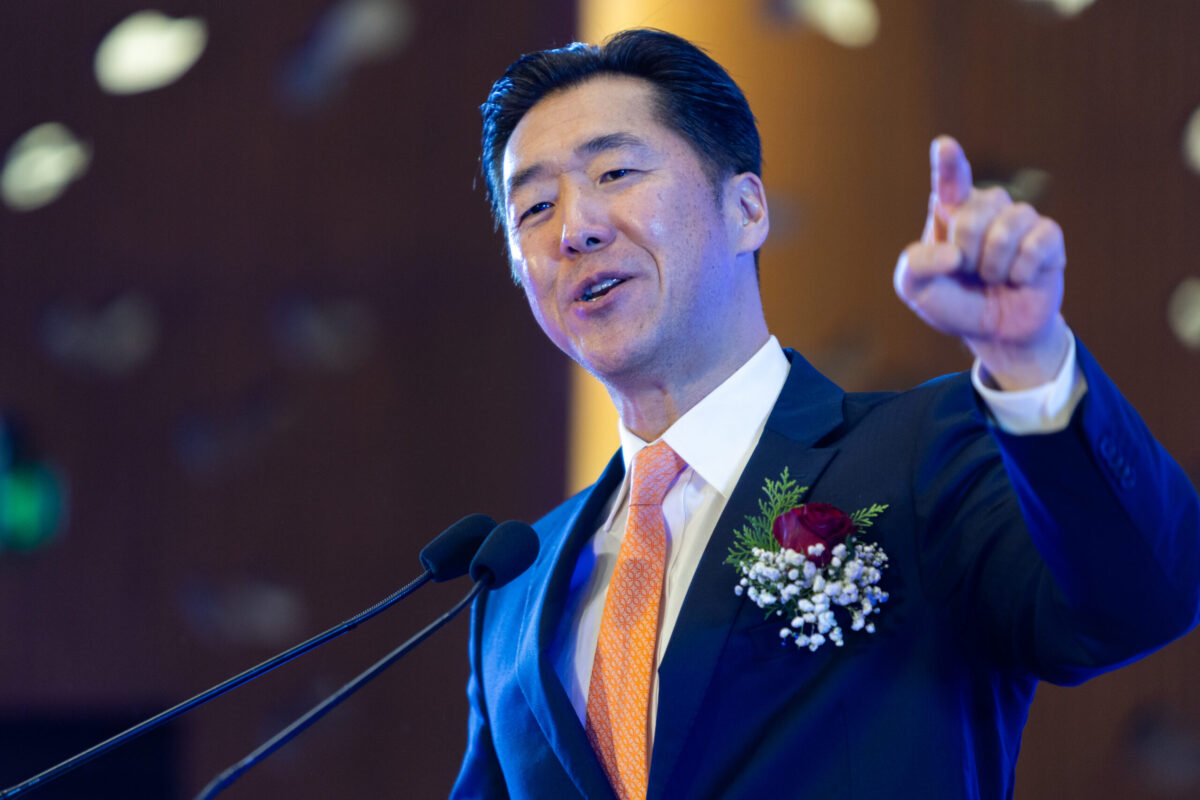
GPF Chairman Dr. Hyun Jin P. Moon
“I beg to differ in terms of the reality of the South,” he said. The Korean economy and its social demographics, and the chaebol system [of family-owned conglomerates] that stifles innovation, is not sustainable, the GPF chairman said. South Korea has the highest unemployment rate among the developed nations, he noted. With one of the best educated, most highly sophisticated and technical workforces, it reflects the weakness of the current system.
“That is why I was never a proponent of South Korea eating up North Korea and bringing it under the South Korean fold,” Dr. Moon remarked. “No, the Korean Dream unification framework is the creation of a new nation because we recognize, with eyes open, that both systems are flawed; and that we as Koreans, if we have a dream that we can share and dream together, can really create a new nation that is better than the sum of the two parts. That is what the Korean dream is about.”
The International Forum on One Korea was co-convened by the Global Peace Foundation, the One Korea Foundation. Blue Banner, Action for Korea United, and the Asia Institute.
The Global Peace Convention is a bi-annual convening of the Global Peace Foundation. Peace and Security was among eight tracks presented virtually and in-person from November 1-December 14, concluding with an in-person convening in Manila, the Philippines.
Learn more about the 2023 Global Peace Convention and GPF’s One Korea Global Campaign.

